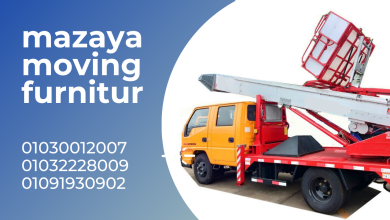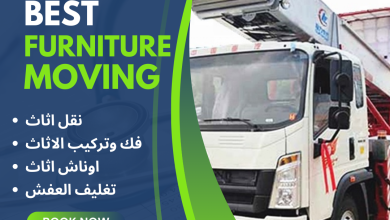
Choosing the best moving company in Egypt can make the difference between a smooth relocation and a stressful ordeal. Here’s a comprehensive guide to help you evaluate and select the most suitable moving service for your needs:
How to Choose a Moving Company IN Egypt
🧭 1. Define Your Moving Requirements
Start by understanding your specific needs:
-
Distance: Is it local, intercity, or international?
-
Volume of items: Estimate the size of the move (e.g., 1-bedroom vs. 4-bedroom).
-
Type of items: Are there fragile, antique, or heavy items like pianos or safes?
-
Special services: Do you need packing, unpacking, storage, or crane/lifting services?
Knowing these upfront helps filter companies with matching capabilities.
🔍 2. Research and Compare Companies
✅ Look for:
-
Licensing and Insurance: Make sure they’re certified and insured. In many countries, you can verify this via government portals (e.g., FMCSA in the U.S.).
-
Experience: The longer a company has been in business, the more reliable their processes likely are.
-
Specialization: Some companies excel in local moves, while others are better for long-distance or commercial relocation.
📊 Compare:
-
Number of years in business
-
Types of services offered
-
Locations covered
-
Fleet size and equipment
-
Pricing transparency
💬 3. Check Reviews and Reputation
-
Read Google, Yelp, or Facebook reviews
-
Look for detailed feedback on punctuality, care in handling items, customer service, and resolution of issues
-
Use platforms like Trustpilot or BBB (Better Business Bureau) where available
-
Beware of companies with many 5-star-only reviews—it may be a red flag
📞 4. Ask the Right Questions
When contacting a mover, ask:
-
Do you provide a written estimate or in-home survey?
-
Are your workers trained and background-checked?
-
What kind of liability coverage or insurance is included?
-
What’s your claims process if items are damaged or lost?
-
Are there hidden fees (e.g., for stairs, long carries, heavy lifting)?
A reliable company will answer confidently and clearly.
💸 5. Request Multiple Quotes
-
Get at least 3 detailed quotes from different companies
-
Ensure each quote includes:
-
Truck size and number of movers
-
Total hours estimated or distance-based pricing
-
Materials (boxes, blankets, tapes)
-
Additional services (e.g. disassembly, storage)
-
-
Avoid unusually low quotes—they often signal bait-and-switch tactics
🔐 6. Evaluate Insurance Options
-
Basic liability is often included, but it may be minimal
-
Ask about full-value protection for high-value items
-
For international or long-distance moves, consider third-party moving insurance
📋 7. Verify the Contract Before Signing
-
Review all terms and conditions:
-
Delivery schedule
-
Cancellation policy
-
Itemized charges
-
Damage claims process
-
-
Never sign incomplete or blank documents
🚩 8. Watch for Red Flags
Be cautious of movers that:
-
Demand large deposits upfront (over 20%)
-
Are evasive about insurance or pricing
-
Lack a physical address or website
-
Don’t offer a written contract
🧠 Bonus Tips
-
Book early, especially during peak seasons (summer, holidays, month-end)
-
Label boxes by room and importance
-
Take photos of valuable or fragile items before moving
✅ Summary Checklist
| Criteria | What to Look For |
|---|---|
| Licensing & Insurance | Verified and valid |
| Reputation | Realistic reviews & high rating |
| Estimate Process | On-site or virtual survey |
| Quote Clarity | All charges broken down |
| Services | Packing, storage, crane, etc. |
| Contract | Written and transparent |
| Insurance | Basic + optional upgrades |
| Communication | Responsive and clear |
If you’d like, I can also help compare 2–3 specific companies or generate a comparison sheet for you. Just let me know the names or websites!

How to Choose a Moving Company
Choosing the right moving company can be hard work. According to the BBB, most moving company complaints stemmed from alleged lost or damaged property, but charging for un-worked hours, arriving late and not honoring estimates also made the list. Moving day is stressful enough without having your stuff arrive broken or with a surprise bill. To avoid it, you’ll want to vet potential moving companies. It only takes a little extra time, and can save a bunch of hassle. Here are our 7 simple steps for how to choose a moving company.
-
Get Referrals
Start by getting free moving quotes. Next, ask friends, family members and coworkers if they can recommend a moving company. If you’re working with a real estate agent, ask the agent for a referral.
-
Follow the Rule of Threes
Don’t settle for the first estimate you receive. Instead, ask at least three different companies to give you an in-person estimate, since no company can really give you a thorough estimate without seeing your stuff.
-
Watch Out for Red Flags
Keep an eye out for red flags during the estimate. For example, most reputable moving companies won’t ask for a cash deposit before you move. If the mover seems hungry to get the money upfront, it might not be a legitimate business. Also, during the estimate, note how professional or unprofessional the movers seem. If they show up late, seem unsure of their abilities, or can’t answer your questions, look for another company. And be wary of any movers who show up in a rented moving van. A professional company will own its own equipment.
-
Make Sure the Mover Is Licensed and Insured
The U.S. Department of Transportation Federal Motor Carrier Safety Administration issues a U.S. DOT number to licensed interstate movers. If you’re moving out of state, verify the moving company’s license through the FMCSA’s protectyourmove.gov site and request the company’s U.S. DOT number; you’ll need it if you have to file a claim against the company later. If you’re staying in state, check with your local consumer affairs agency. You can find a list of local agencies through the FMCSA’s contacts database.
-
Check With the Better Business Bureau
Research the moving company’s track record with the BBB, which you can do free online. Stick with moving companies that are BBB accredited or at least have a good rating. If the moving company isn’t listed with the BBB, consider looking for one that is.
-
Ask About Professional Accreditation
Trade associations vet companies before giving them a membership or approved seal. Look for a moving company carrying the American Moving and Storage Association’s ProMover logo. You can also search for approved companies directly from the American Moving and Storage Association’s Moving.org site.
-
Verify the Address
Ask for a business card or pull up the mover’s website and then look up the listed address online or through the phonebook. Make sure the moving company’s address is listed and registered under the company names. Be wary of any address listed under a residential name.
Get a written estimate
Get several, from different moving companies, and compare them. The estimate should be based on an actual in-person inspection of your household goods, as we’ve mentioned above. We recommend getting at least three quotes from different moving companies.
Tips on avoiding moving scams
The most common moving scams you could run into include:
- The hostage – When a mover won’t give you your belongings back until you pay double or triple the amount of your original estimate.
- Bait and switch – When a mover switches your moving arrangement at the last minute, and it ends up costing you way more than originally agreed upon.
- Outrageous delivery charges – When a mover tacks on additional costs for made-up reasons and forces you to pay more in order to get your things back.
- Late delivery – The mover doesn’t deliver your belongings on time – or worse, never delivers them.
- Reckless abandonment – When the mover takes your money ahead of time, closes shop and ditches your belongings.
Here are some tips on how to spot major red flags and avoid falling victim to a moving scam.
Never pay a large deposit. Reputable movers won’t demand cash or a large deposit before moving. You should only pay upon delivery. Otherwise, you may never see your belongings again. And pay with a credit card to help protect you from possible fraudulent activity.
Avoid moving companies with a name switch. To avoid being flagged by the BBB, some less than stellar companies operate under different names. If the company doesn’t have a local address, its employees don’t answer the phone with the full name of the business, or you find out that there are any other names the company “does business as,” those are all red flags. Also, the company should have the details on its licensing and insurance readily available to you, including state and federal license numbers.




